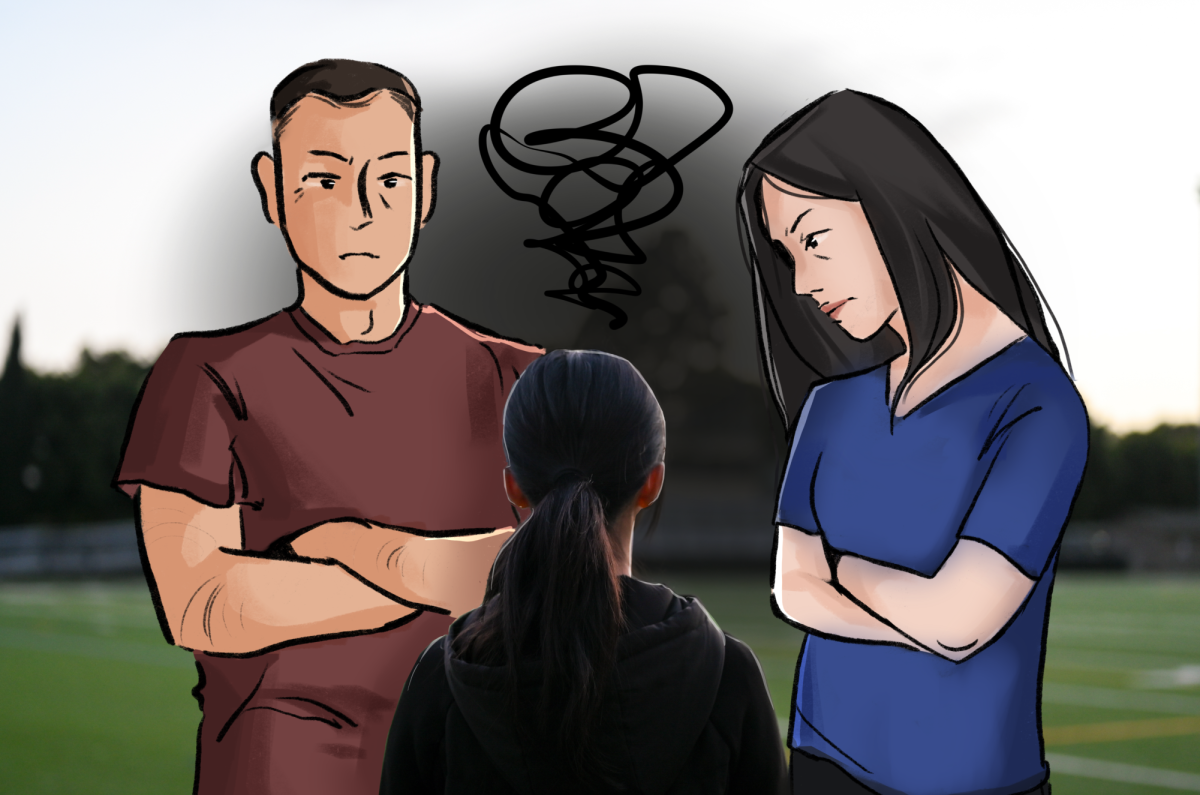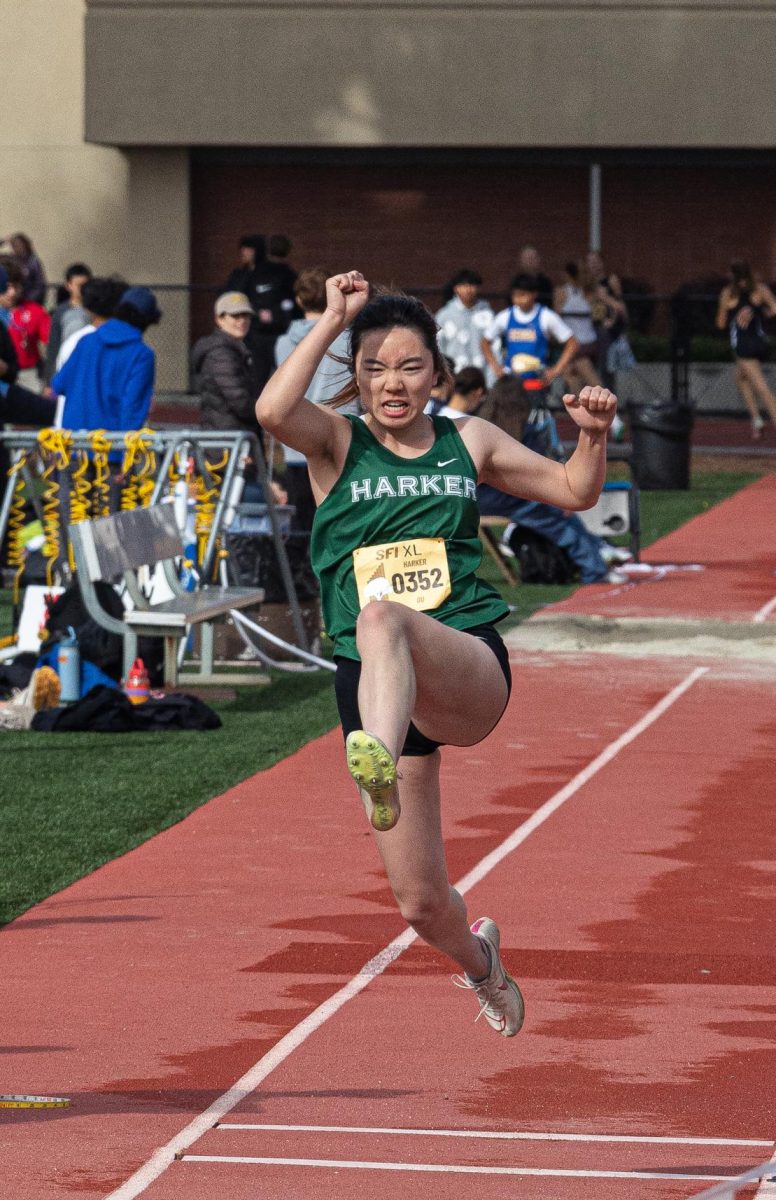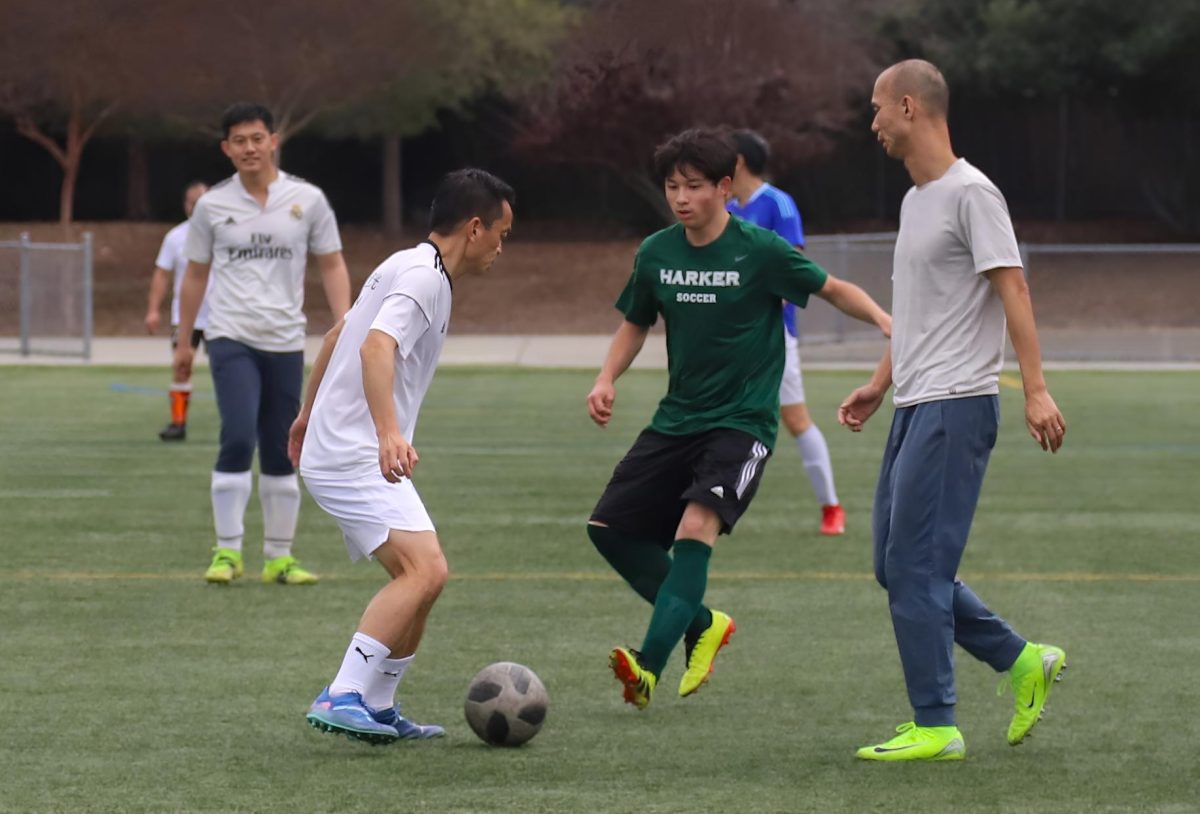Nationally-ranked tennis player Audrey Feng (11) relaxed during the second set of her match, coasting on a comfortable lead and looking forward to finishing strong. Suddenly, she felt her energy sap away, her lead disappearing with it. What could have been a major win at a high-level tournament transformed into a disappointing loss in the blink of an eye.
“You can never see it coming,” Audrey said. “You just start losing, and you don’t know why. You feel lost, because you don’t know what to do. Once you have that drop, there’s nothing you can do to get it back immediately.”
Audrey attributed her rapid loss of momentum to a lack of proper fuel, as she did not eat anything for the entirety of the lengthy match. After the experience, she realized the importance of nutrition to her athletic performance and began regimenting her snacks during play.
Much like Audrey in her early career, many athletes overlook the benefits of maximized nutrition. By breaking down the issue of balanced eating, student-athletes especially can take their performance to new heights. According to registered dietitian Sara Leung, the adolescent years comprise an especially crucial period for athletes.
“Because teen athletes are still growing and developing, it’s important to ensure they’re getting enough nutrition and hydration, not just for their growing bodies but also for the energy expended during the activity,” Leung said. “Good nutrition is essential in helping to sustain and even improve the performance of athletes, no matter what the sport.”
Most athletes should prioritize energy sources like carbohydrates in their diets, according to Leung. She recommends eating high volumes of foods like bread and pasta before high-intensity activity, in order to build an energy reserve and support endurance.
Varsity cross-country athlete Ava Alvarez (9) also highlighted the importance of “carbo-loading,” or consuming high quantities of carbohydrates, before races.
“Carbo-loading works for me,” Ava said. “I try to eat rice, and lots of fruits and veggies. In the morning, your stomach is really empty, so it’s important to get a lot of food the night before, especially when you have a morning race.”
Similarly, protein’s essential ability to repair muscles allows athletes to grow stronger after each workout. However, too much protein can cause dehydration and kidney problems, making moderation the key to athletes’ success.
“There is a common misconception that high protein, low carb is best for performance when in reality it’s actually the opposite,” Leung said. “Since carbohydrates are our body’s preferred fuel source, it should be the main focal point of meals.”
Apart from the food itself, the timing of meals also plays a role in athletes’ performance. Leung recommends athletes eat at least three meals and two to three snacks a day around scheduled games and practices. However, the optimal types of food, as well as quantity and timing varies based on the person or activity. Proper eating before training or competing helps prevent both blood sugar drops and jumps and provides athletes with necessary, sustainable energy.
“In terms of sports nutrition, I like to stay away from sugar,” Audrey said. “Consuming too much sugar often makes my energy spike and crash very quickly, and I would not want to risk a crash in the middle of a match.”
Misconceptions about nutrition steer athletes away from proper nutrition. Heavily advertised protein supplements encourage an excessive amount of protein consumption, although studies conducted by organizations like the Clean Label Project found they are often an unnecessary addition to the average person’s diet. Further, as in Leung’s experience, the dietary ferm “fat” often carries a negative connotation despite the food group’s vital role in fueling the body.
While Leung emphasizes the critical role of proper nutrition in improving the performance of teenage athletes, she also urges students to understand and build a positive, healthy relationship with food.
“Paying attention to how we think and talk about food, and what food beliefs we have is not something to minimize,” Leung said. “If you feel your thoughts and feelings towards food are complicated and/or restricted or limited in some way, seek out the advice and education of a trained eating disorder or sports dietitian that can help shed some light on food truths and look at food in a neutral way.”


















![“[Building nerf blasters] became this outlet of creativity for me that hasn't been matched by anything else. The process [of] making a build complete to your desire is such a painstakingly difficult process, but I've had to learn from [the skills needed from] soldering to proper painting. There's so many different options for everything, if you think about it, it exists. The best part is [that] if it doesn't exist, you can build it yourself," Ishaan Parate said.](https://harkeraquila.com/wp-content/uploads/2022/08/DSC_8149-900x604.jpg)




![“When I came into high school, I was ready to be a follower. But DECA was a game changer for me. It helped me overcome my fear of public speaking, and it's played such a major role in who I've become today. To be able to successfully lead a chapter of 150 students, an officer team and be one of the upperclassmen I once really admired is something I'm [really] proud of,” Anvitha Tummala ('21) said.](https://harkeraquila.com/wp-content/uploads/2021/07/Screen-Shot-2021-07-25-at-9.50.05-AM-900x594.png)







![“I think getting up in the morning and having a sense of purpose [is exciting]. I think without a certain amount of drive, life is kind of obsolete and mundane, and I think having that every single day is what makes each day unique and kind of makes life exciting,” Neymika Jain (12) said.](https://harkeraquila.com/wp-content/uploads/2017/06/Screen-Shot-2017-06-03-at-4.54.16-PM.png)








![“My slogan is ‘slow feet, don’t eat, and I’m hungry.’ You need to run fast to get where you are–you aren't going to get those championships if you aren't fast,” Angel Cervantes (12) said. “I want to do well in school on my tests and in track and win championships for my team. I live by that, [and] I can do that anywhere: in the classroom or on the field.”](https://harkeraquila.com/wp-content/uploads/2018/06/DSC5146-900x601.jpg)
![“[Volleyball has] taught me how to fall correctly, and another thing it taught is that you don’t have to be the best at something to be good at it. If you just hit the ball in a smart way, then it still scores points and you’re good at it. You could be a background player and still make a much bigger impact on the team than you would think,” Anya Gert (’20) said.](https://harkeraquila.com/wp-content/uploads/2020/06/AnnaGert_JinTuan_HoHPhotoEdited-600x900.jpeg)

![“I'm not nearly there yet, but [my confidence has] definitely been getting better since I was pretty shy and timid coming into Harker my freshman year. I know that there's a lot of people that are really confident in what they do, and I really admire them. Everyone's so driven and that has really pushed me to kind of try to find my own place in high school and be more confident,” Alyssa Huang (’20) said.](https://harkeraquila.com/wp-content/uploads/2020/06/AlyssaHuang_EmilyChen_HoHPhoto-900x749.jpeg)













